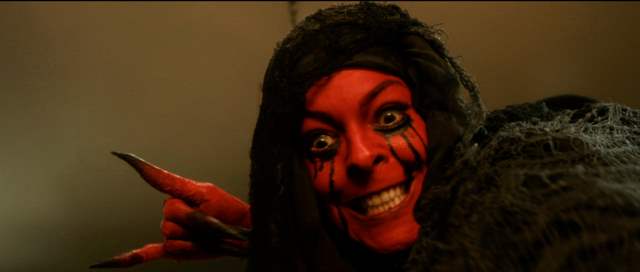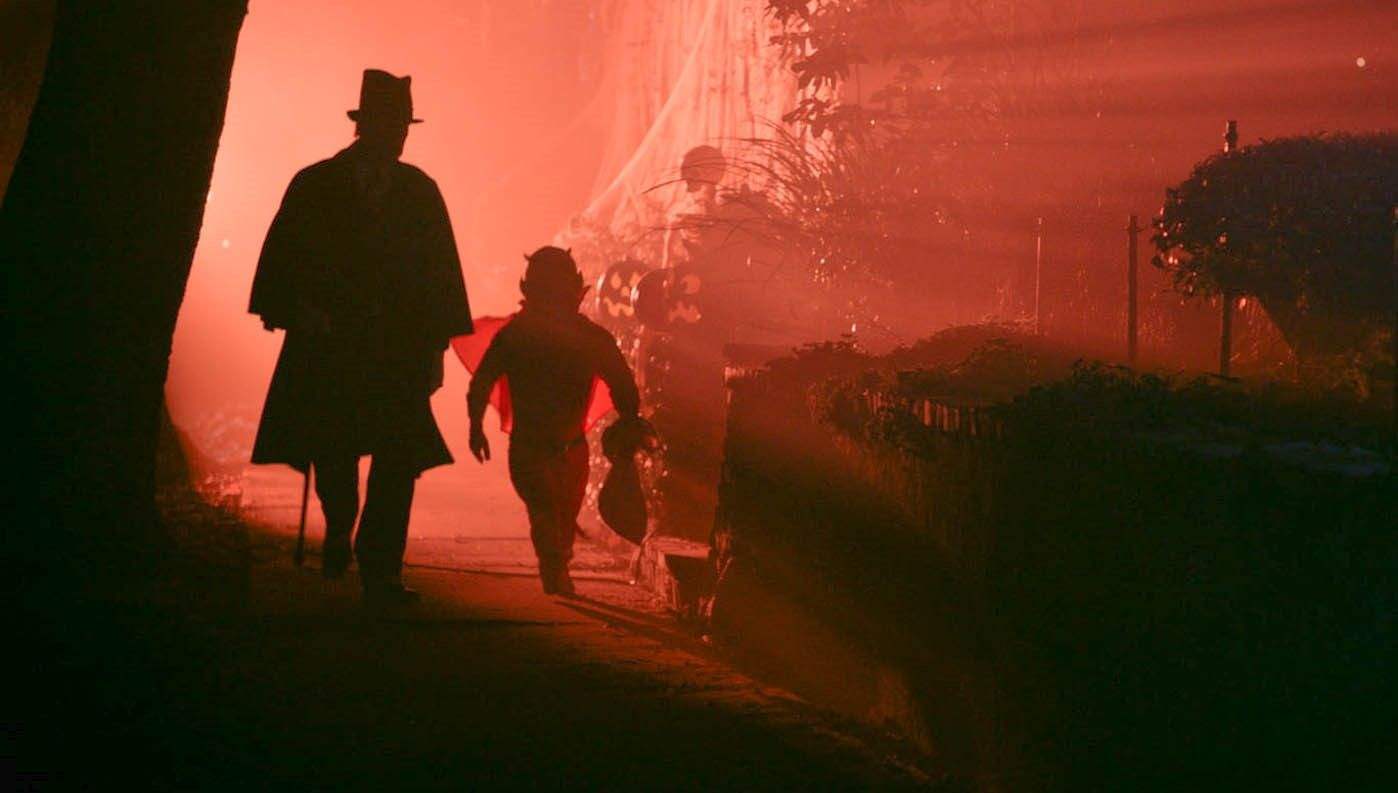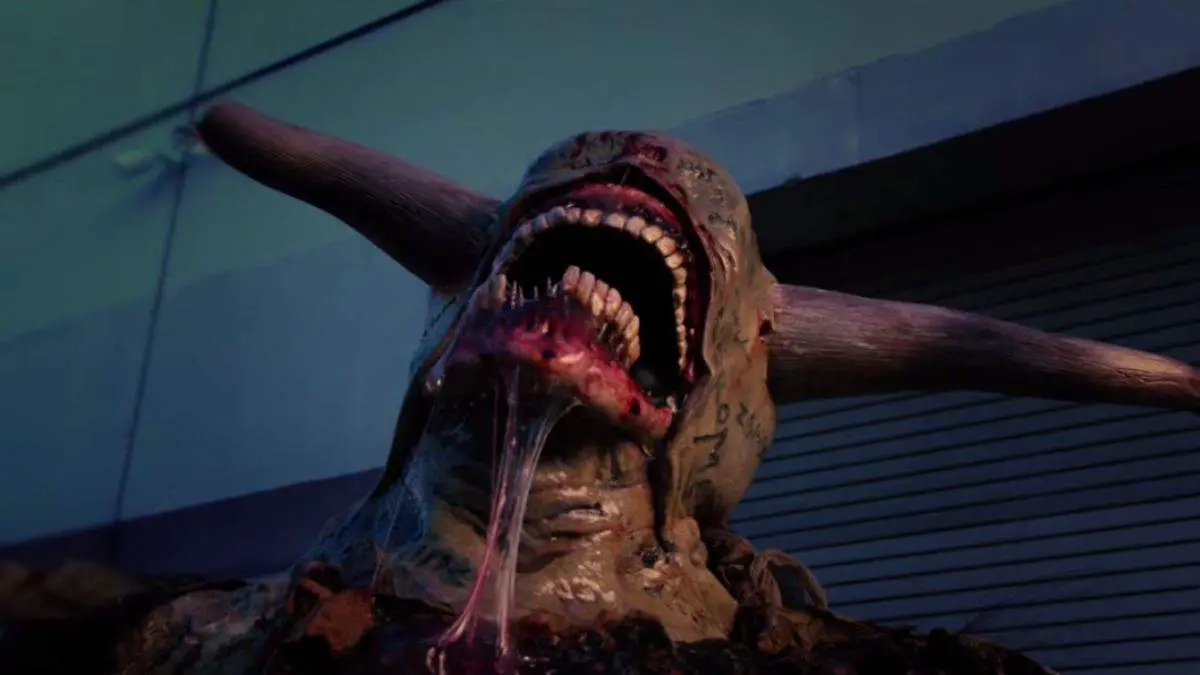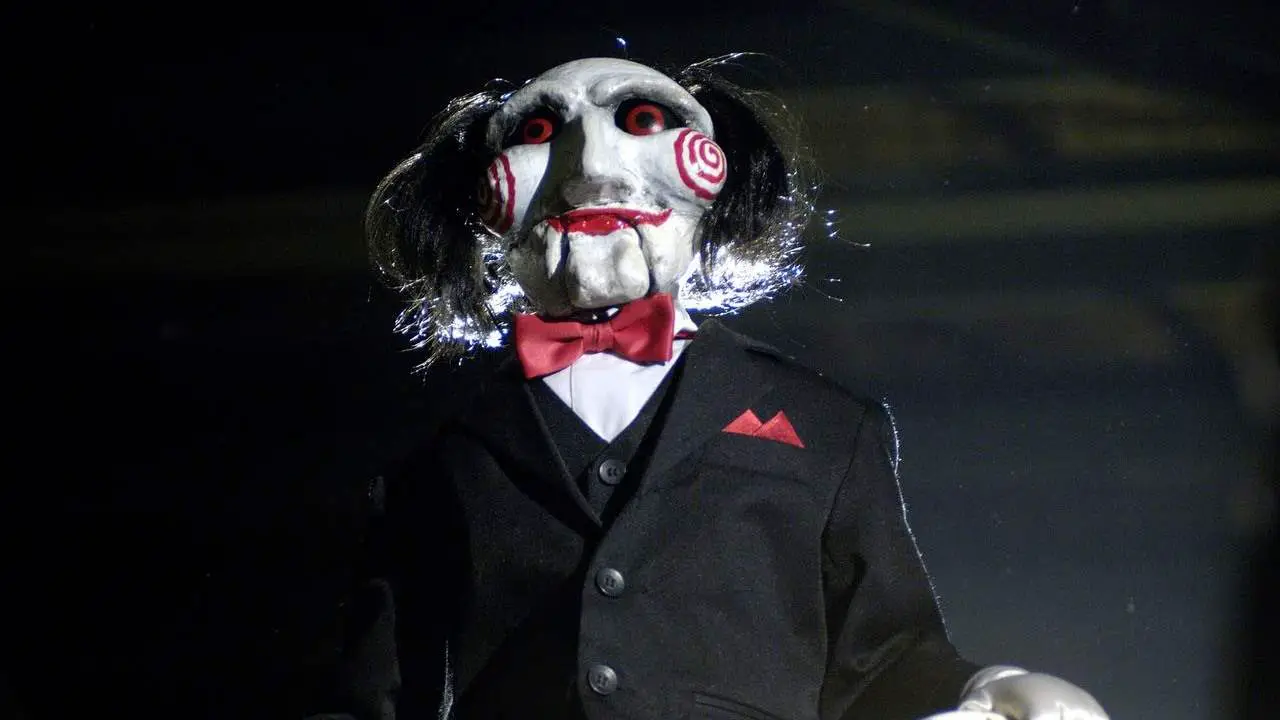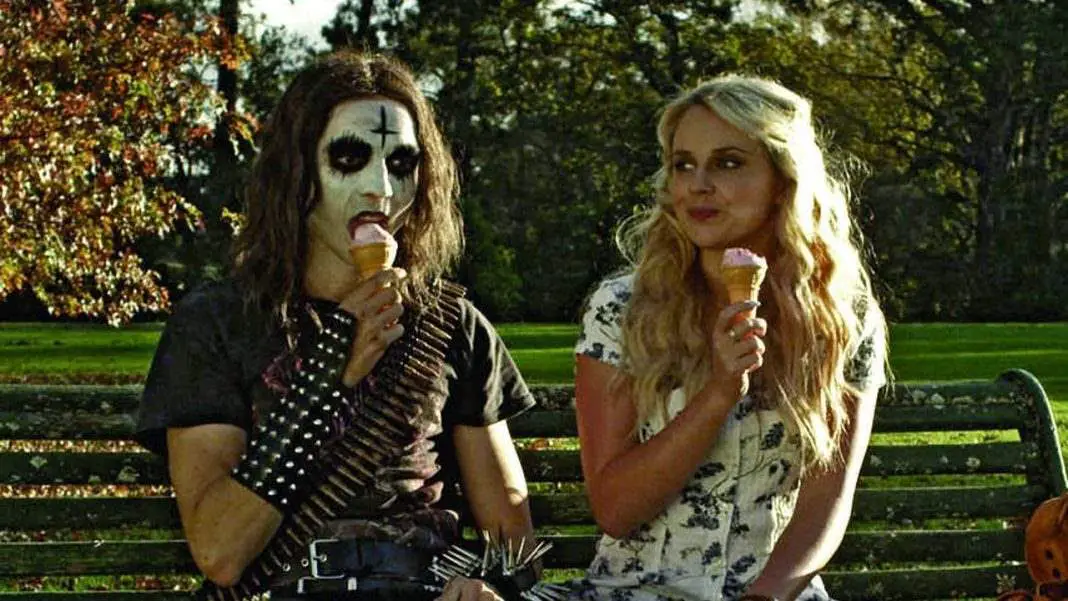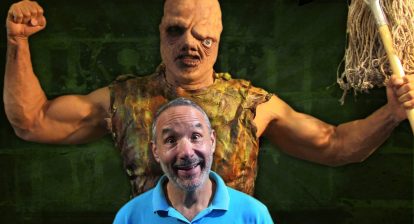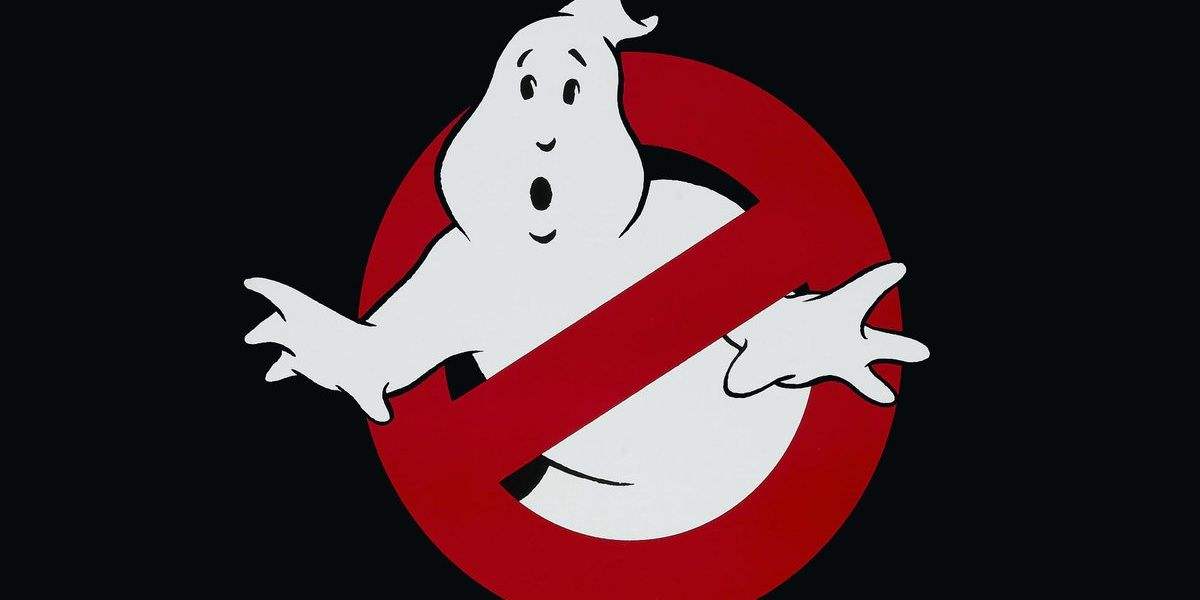Wicked Horror recently had the opportunity to speak with master of horror Lucky McKee about his contribution to the exceptional horror anthology Tales of Halloween. Read our review right here. The director filled us in on the subtext in his vignette (‘Ding Dong’), explained why the film comes off as being so seamless in spite of being an amalgamation of shorts helmed by different contributors, offered his thoughts on why so few directors are making feminist positive cinema, and much more.
Tales of Halloween consists of a series of ten vignettes, helmed by eleven different directors (one of the segments is a collaborative effort between two directors). The talent involved with the project call themselves The October Society. The feature includes a series of integrated tales, all which pertain to Halloween.
In addition to McKee, the project features contributions from Darren Lynn Bousman (Saw II, III & IV), Axelle Carolyn (Soulmate), Adam Gierasch (Night of the Demons), Andrew Kasch (Never Sleep Again: The Elm Street Legacy), Neil Marshall (The Descent), Mike Mendez (Big Ass Spider!), Dave Parker (The Hills Run Red), Ryan Schifrin (Abominable), John Skipp (Stay at Home Dad), and Paul Solet (Grace). Kasch and Skipp will be collaborating to co-direct one of the vignettes.
Wicked Horror: Thanks for talking with us. I’m looking forward to talking about ‘Ding Dong’.
Lucky McKee: I love talking about ‘Ding Dong’. [Laughs]
WH: So, how collaborative were you guys as directors on the set of Tales of Halloween. Were some of you around for the whole production or were you just there for a couple of days and then you were out?
Lucky McKee: The thing is that it was probably more different for me than anybody because I don’t live in Los Angeles, right now. So, I had to fly in to prepare my first few days and then shoot it for a few days. I was able to hang out on Dave Parker’s set a little bit. I know a lot of the other directors got to hang out on each other’s set. But I only got to do that on Dave’s film for a brief period. Mostly, it seemed like everybody showed up and cheer-leaded for each other. A bunch of those guys showed up on one of my last nights. I was shooting in the parking area of this house and Neil Marshall showed up and Mike Mendez and Axelle [Carolyn] and those guys. It was cool to kind of have their presence on the set. It was like a blessing, you know? It got a little more collaborative once we got into postproduction. Everybody kind of looked at each other’s cuts and kind of gave notes and started to figure out exactly how we wanted to put this whole tapestry together.
WH: That’s great to hear. I think that a lot of times with anthologies, it almost feels like the right hand isn’t talking to the left. But it’s easy to see that you guys did take, when possible, a collaborative approach. It was neat to see the way that everything was interwoven, even though it was eleven different minds coming together.
Lucky McKee: That was Axelle’s vision from the beginning that there be connective tissue between all of them. It was really fun, kind of creating that connective tissue. It worked really well, especially because we all kind of knew that going in. Trick or Treaters were pretty crucial because they keep showing up at the door in my segment. It was cool to be able to use characters from other short films that I hadn’t even seen yet. Once they put the whole film together, I was like, ‘Wow, that’s really cool.’ Like, the way that these characters connect to Adam Gierasch’s segment ‘Trick’. This other character connects to ‘The Ransom of Rusty Rex’. It was really fun.
WH: There are a few theories floating around about some of the subtext of your segment. The one that I tend to identify with is that it seems like maybe it’s a commentary on loss and we’re seeing a personification of grief and maybe what the husband sees, rather than what’s actually taking place. So, I was curious if that was where your mind was or if we’re overthinking it?
Lucky McKee: You’re not overthinking it at all. That’s a really cool theory. Almost everything I’ve made up to this point has been from a female perspective and I thought it would be really cool to take a subjective trip through a man’s mind and deal with male fear of having a child and the responsiblity that comes with that and also the fear of ‘Do I have the right partner?’ and all that kind of stuff. Your theory is very interesting, though. The theory of a lost child, because my intent from the beginning was that they don’t have a child and she really wants one but he’s afraid to have a child with her because he thinks she’s crazy, so that was kind of the approach but I wanted it to be playing around more in a subconscious type space, as opposed to something real. So, it was fun to play around in that sort of subconscious David Lynchian sort of approach.
WH: Well, I loved your short. I think that you have a talent for encouraging non verbal communication from your characters. How are you able to get your cast to communicate so much of what they’re feeling with so few lines to do so in a lot of your work?
Lucky McKee: Thank you. For me, a big part of the way I approach it is getting in the mood with them and trying to get into the same headspace they’re supposed to get into. A lot of what we talk about isn’t how to perform the lines of dialogue but what’s going on in their heads. Like what they’re thinking and trying to get the actors to express, in a visual way, what’s going on–emotionally what’s going on inside. But a big part of it is just getting in the mood with them and taking it as seriously as possible, trying to create that atmosphere on set where an actor feels comfortable trying to go to those dark emotional places. You know, there’s also a fair amount of telepathy involved. Talking about what this is about and feeling what it’s about, being there in person with somebody and being able to look them in the eyes and give them–I don’t know how to explain it. There’s a little bit of telepathy involved is the best way to put it. [Laughs]
WH: Is that maybe why you work with a lot of the same people on a regular basis? Because these are people that you have that aforementioned telepathy with? I would imagine you don’t have that with everyone that auditions for one of your films.
Lucky McKee: Definitely not. Some people, it takes a little bit of work to get to that place and eventually we do. It’s just like friends, or you know lovers or whatever. There’s like certain people you meet and you hit it off with instantly. You just have this sort of unspoken connection that’s just there. You either have that from the get go or you find it together, which is a really rewarding emotional process. Obviously it helps. Something like this where we really didn’t have that much time to shoot it, it really helped kind of having people that I had worked with before: A production designer I had worked with before and two actors. Marc [Senter], I hadn’t directed him in anything yet but I produced him in The Lost and we’ve been friends for years and we’d always wanted to work on something. We’d always talked about acting and different ways of approaching things, so it was cool to get my hands on him as a director. We already had a really strong emotional relationship with each other, so that helped tremendously.
WH: I think that more so than any other genre film director working today, that comes to mind off the top of my head, you are known for bringing strong, capable female characters to life. A lot of times, you have women in roles that we may typically see a man embodying. I love that about you. So, why do you think it is that so few directors really get that that’s what audiences want to see?
Lucky McKee: That’s tough. I mean, everything that we’re doing is on top of the mountains of film that have been shot before us and a lot of us take our cues and our inspiration from what’s come before and different people have their own ways of interpreting that. I don’t have any answer for why what you’re talking about is taking place and I agree but I can only kind of do things from my own little perspective, my own little point and do things in my own way. I don’t really know why that is. It’s unfortunate. Everything evolves. You know? It seems like things are going in a better direction all the time.
